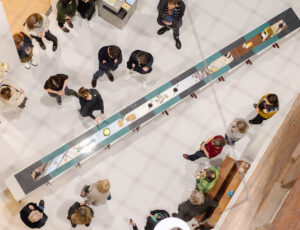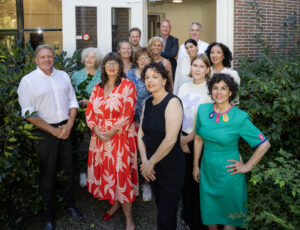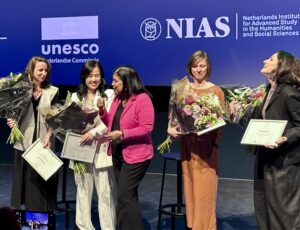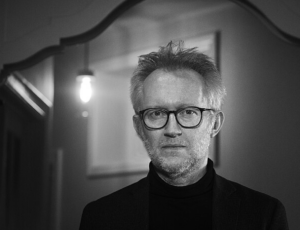NIAS Theme Group coordinator (2012/13) Rob van der Laarse (Professor Heritage and Memory University of Amsterdam/VU Amsterdam) has been awarded a 1.2 million HERA grant under the Joint Research Proposals ‘Uses of the Past’ call issued by the HERA (Humanities in the European Research Area) international research agency for research into Europe’s conflicted heritage. iC-ACCESS is one of only 18 proposals awarded funding out of a total of 605 applications submitted in response to the call ‘Uses of the Past’.
Project iC-ACCESS
‘Accessing Campscapes: Inclusive Strategies for Using European Conflicted Heritage’ (iC-ACCESS) looks at traces of the 20th century mass violence and terror, as tangible reminders of the “age of extremes”. In most post-war European countries former Nazi internment camps have become icons of antifascist resistance and the Holocaust, and they have played a consistent role in postwar European memory of totalitarianism and genocide. In the Eastern European centre of the Holocaust and Communist terror, many former ‘terrorscapes’ are still contested spaces where consecutive internments of prisoners by occupying powers and authoritarian regimes transformed the victims of one event into the persecutors of another. This entanglement of remembering with forgetting and the silencing of competing narratives (commonplace in relation to completely unknown forms of historical injustice) show the strong connection between heritage, storytelling and the politics of identity. This poses a serious challenge to museums, remembrance institutions, civil society organizations, social activists, critical academics and educators tasked with the development of new and alternative narratives to make such spaces ever more relevant.
The project is a collaboration between University of Amsterdam, NTNU Norwegian University of Science and Technology Trondheim, Staffordshire University, Staffordshire, University of West Bohemia Pilsen, Freie Universität Berlin and Universitat Pompeu Fabra Barcelona. Starting from the issue of materiality, the project will relate forensic research, archaeological practices and historical truth-finding to memory works, narratives and museum display. Innovative pilots will use state-of-the- art, hybridised archaeological techniques (digital and non-invasive) in order to identify and visualize hidden material remains within the selected campscapes and at the same time ‘produce’ new meanings regarding unknown or hardly known sites and objects.
Over the next three years (2016-2019) UvA will carry competing memory narrative analysis and NTNU, SU, UWB (among them Caroline Sturdy Colls and Marek Jasisinski, former NIAS fellows from the Terrorscapes theme group) will conduct fieldwork at key campscapes across Europe: Westerbork (The Netherlands), Treblinka (Poland), Falstad (Norway), Jasenovac/Donja Gradina (Croatia/Republika Srpska), Bergen-Belsen (Germany), the former Roma camps Lety and Hodonin (Czech Republic), and the former uranium Gulag Labor camps in the Jáchymov region (Czech Republic). FUB will assess the role of testimonies in increasing accessibility and visibility for visitors of such sites and UPFB will explore the potential of new technologies of victual reality to map and connect competing memories on campscapes. The project benefits from the support of ten associate partners relevant for the topic such as the on site memorial centre of the Vienna Wiesenthal Institute.
The research innovation of iC-ACCESS stems from the complementarity of seldom related disciplines, such as heritage studies, material culture studies, conflict archaeology, memory studies and digital humanities, and it channels interdisciplinary research perspectives from the growing academic interest in conflicted heritage. Specialists explore what has become, in the European context, a dominant set of issues: the dynamics affecting the staging and presentation of some Holocaust camps into heritage, and the forgetting of others; the acknowledgement and presentation of Soviet campscapes in Eastern Europe; conflicted Holocausts, and simmering older ethnic/regional tensions exacerbated by the present EU crisis affecting the identity and future of the European integration project. Therefore, iC-ACCESS addresses the future role of the camps as monuments of the 20th ‘century of camps’ in the dynamic context of the European process of integration and the current age of (financial, geopolitical and refugee) crisis.



